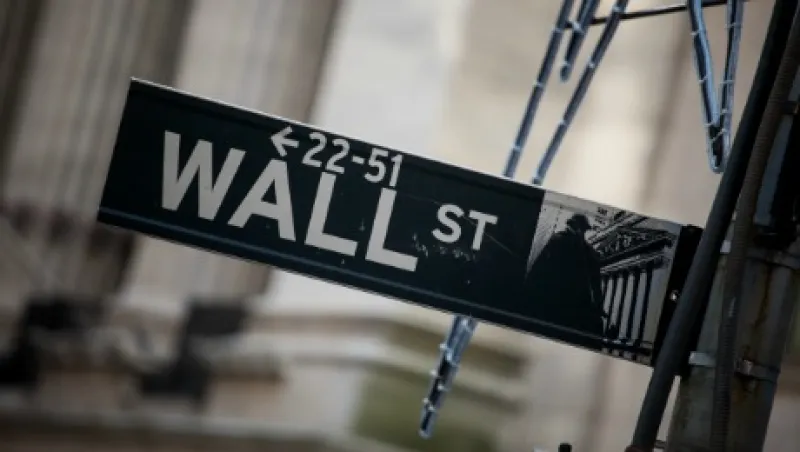With earnings season kicking into full gear in the U.S., equity investor sentiment remains decidedly sour. According to FactSet, the latest revisions for fourth-quarter results have declined by more than 5 percent for Standard & Poor’s 500 components as a whole, while forecasts for 2016 have also suffered. Not all earnings expectations are equal however, with dismal forecasts for energy and basic materials sectors responsible for the lion’s share of downward adjustments. For investors seeking a silver lining for large-cap equities, there are arguments to be made for a rebound as the year continues. In a note to investors yesterday, Tom Stringfellow, president at Frost Investment Advisors in San Antonio pointed out that since 1960, the S&P 500 has rallied every year between 11 percent and 34 percent following a flat year (although in all cases, projected earnings were stronger than today’s). Stringfellow also noted that, according to his analysis, in 11 of the 14 times the S&P 500 fell by more than 1 percent during the first day of the trading year since 1928 the final return for the month was positive. In any case, the glass-half-full argument will be tested in coming days as more companies report. Among the glass-half-empty proponents, few are as bearish as Société Générale economist Albert Edwards, who in a note yesterday speculated about a possible scenario in which stocks tested credit-crisis lows as central bank policymakers remove their support.
Chinese exports stronger than anticipated. December export data released today by China’s General Administration of Customs revealed stronger than anticipated shipments abroad with total exports declining by only 1.4 percent on a dollar basis rather than the forecasted 8 percent contraction. Imports also fared better than consensus expectations as the trade surplus expanded to $60 billion for the month. Separately, a privatization fund created by the Greek government today revealed that China’s Cosco Group was the sole bidder for the port of Piraeus.
BoE seeks stronger clawback provisions. In a Wednesday statement, the Bank of England’s Prudential Regulation Authority asked for comments from the financial services sector on a proposal to allow compensation to be clawed back from bank employees who create losses by taking improper risks, whether or not they’re still employed at the institution. According to regulators, the current U.K. employment market typically allows executives to sidestep repercussions when they leave one bank for another, since new employers buy out unvested bonuses accrued at prior firms.
Beijing’s corruption purge set to continue. Official Chinese state media today quoted Chinese President Xi Jinping saying that in 2016 “no one will dare to be corrupt” due to his intense program of eradicating private- and public-sector fraud. According to the report, corruption at the local government level will be a particular focus of investigations. Non-performing loans held by funds managed by local governments in China remains a major concern of economists.
Japan to invest in wind power. The Development Bank of Japan today announced the creation of a new fund initially capitalized with more than $400 million to invest in wind-powered projects. DBP, wholly owned by the Japanese government, anticipates that alternative energy will make up an increasing percentage of the energy mix as concerns over dangers of nuclear power remain a divisive Japanese political issue in the wake of 2011’s Fukushima disaster.
Portfolio Perspective: Rebel, Rebel, How Could They Know — Nicolas Colas, ConvergEx Group
My favorite fact about the recently departed David Bowie: That wasn’t his real name. When he got to London in the late 1960s, intent on making it in music, he used his real name — David Jones. To make it more casual and hip, he shortened it to Davy or Davie, and therein was the problem. There already was a Davy Jones, the frontman for the TV band The Monkees, and having another one roaming around was confusing. So Davy Jones changed his name to David Bowie, after the American western hero — all to avoid being mistaken for the other Davy Jones, who for all his charms was essentially the 1960s version of a better-mannered Justin Bieber.
Capital markets, as they start 2016, probably wouldn’t mind a name change. Just as David Bowie grew tired of being mistaken for Davy Jones, there has been no end of comparisons to the year-just-commenced. Some think it looks like (gulp) 2007, with Chinese easy credit leading to a U.S. subprime-like cycle of malinvestment and bursting bubbles. Others look to the late 1990s Asia Crisis, when oil bottomed at below $10 a barrel. And for those who’ve read their financial history — or at least skimmed the Cliff Notes — 1937 comes up as a comparable situation since the Federal Reserve’s recent move to increase interest rates reminds them of the same institution’s ill-fated moves back in the day.
In reality, the most useful comparison to January 2016 is probably August and September 2015. We have the same basic issues — China and oil prices — hanging over the market’s head. Continued concerns over when the Federal Reserve might raise interest rates? Check. Valuation concerns regarding U.S. stocks? Yep, got those. The only things that seem different is that oil prices have dropped about 25 percent since then and the CBOE VIX Index hasn’t breached 30 just yet.
Nicholas Colas is chief market strategist at ConvergEx Group, a New York–based global brokerage firm.






